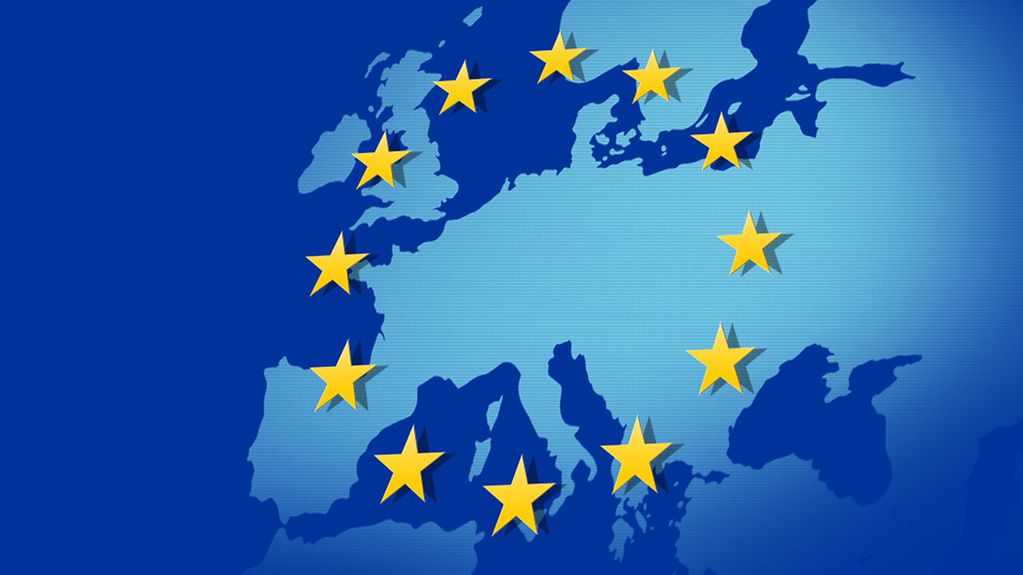Outcome of the European Council meeting
Europe intends to cooperate more closely on security and defence policy. The geopolitical challenges it faces makes this essential. The EU heads of state and government have provided significant impetus in this direction at the European Council meeting.

Germany at the European Council
Photo: Colourbox
Europe will have to shoulder more responsibility for its own security. At their meeting in Bratislava in September 2016, 27 EU heads of state and government decided that new impetus was needed in the defence sector.
Now the European Council has discussed further steps to realise this. NATO Secretary General Jens Stoltenberg attended the meeting as a guest.
Greater cooperation on defence – what does that really mean?
1) Cooperating continually on a structured basis on defence
Some of the world’s conflict-affected regions are not far away from the EU. And every member state has its own army. European cooperation in this area is sensible and essential. The European Council has stressed unambiguously that this cooperation is to be stepped up. The meeting also discussed the possibility of putting in place a common headquarters.
The European Council also stressed that it wanted to avoid duplicating NATO structures. Back at its summit meeting in June, the European Council advocated developing EU-NATO relations, in view of their shared objectives, values and the current challenges faced.
After the summit meeting Chancellor Angela Merkel said, "We will put in place a system of ongoing and structured cooperation (on defence) – ideally involving all member states. We will build civilian and military leadership and planning capabilities at the strategic level, and that certainly means an institutional framework in the form of a headquarters – not to duplicate NATO, but also with the emphasis on the civilian element."
2) Civilian missions and military operations to be planned and managed together to a greater extent
Although cooperation already exists, it could be stepped up, and military capabilities in Europe better combined. Examples of good practice already exist, including the Franco-German Brigade and the European Air Transport Command. In future civilian missions and military operations are to be managed jointly to a greater extent.
3) Partners (like Mali for instance) are to be enabled to ensure their own security
One example is the European Union Training Mission Mali. Mali’s security forces are receiving basic military training and advisory services. Germany provides one of the largest contingents of troops for the mission, and took over the command of the EU mission last July.
Other outcomes of the summit meeting
Stepping up engagement for migration compacts
The migration compacts with African states are an important part of the European strategy for coping with the refugee crisis. If the root causes of displacement are addressed, fewer migrants will set off for Europe, many of them risking their lives in the process. With partner countries the EU intends to prevent illegal migration and ensure that illegal migrants are readmitted by their home countries.
At its summit meeting in June, the European Council decided to engage in migration compacts. The EU is currently developing partnerships with five African states: Niger, Mali, Ethiopia, Nigeria and Senegal.
The European Council agreed to continue to step up these activities. One instrument that can help support positive economic development in partner countries is the investment offensive for third countries. It is now to be implemented rapidly.
Commenting on the migration compacts, Chancellor Angela Merkel said, "This is very specific assistance ito foster development in these countries, assistance to restore security in these states and assistance to help them combat human trafficking."
Setting the scene for the ratification of the Association Agreement with Ukraine
The Association Agreement between the EU and Ukraine was signed back in 2014 and applied provisionally. For it to come into effect all EU member states must ratify the agreement. The Netherlands is now the only state that has not yet done so.
In a referendum in the Netherlands in April 2016 a majority of voters rejected the ratification of the Association Agreement. The European Council has now adopted a whole series of legally biding clarifications, so that the Association Agreement can be submitted to the Dutch Parliament for ratification.
Outcome of the EU-27 meeting
Procedure laid down for exit negotiations with the United Kingdom
The EU intends to be ready once the United Kingdom notifies it of its intention to leave. The 27 heads of state and government thus met informally after the European Council meeting to discuss procedural issues.
Negotiations will be handled by the European Commission under chief negotiator Michel Barnier. Negotiations cannot begin until the United Kingdom officially notifies the EU that it intends to leave.